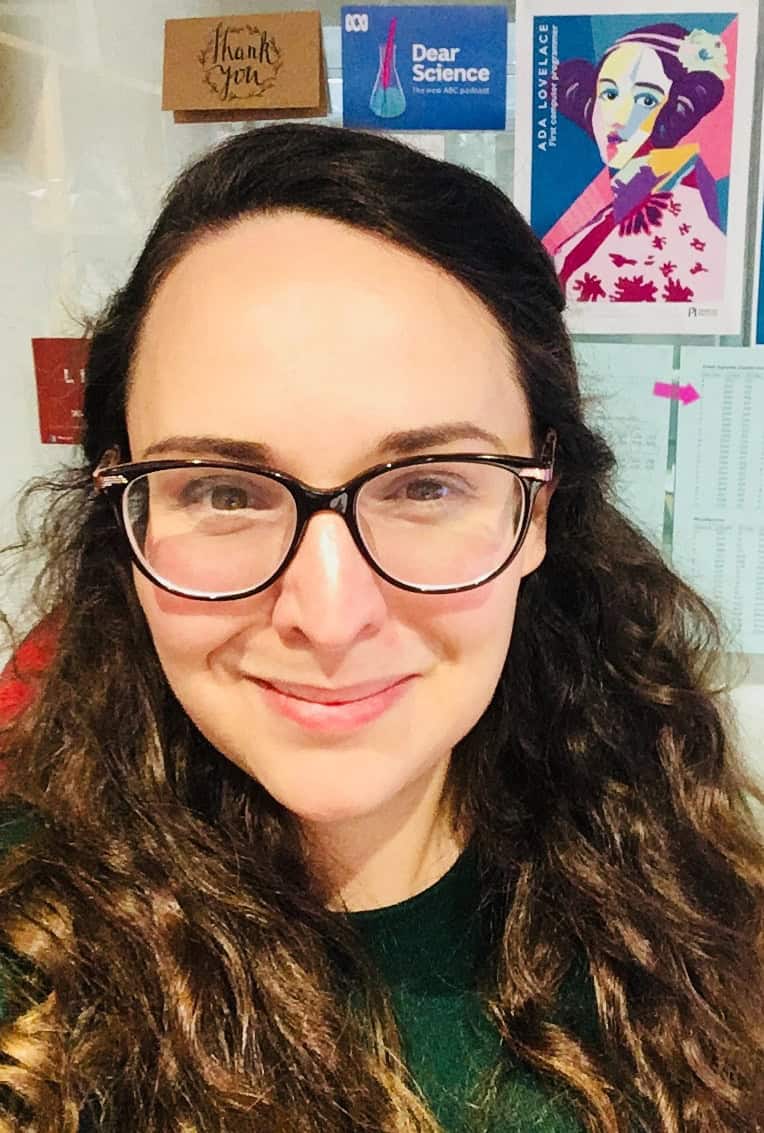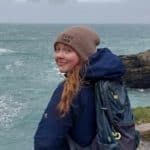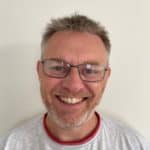Profile
Helen Codd
-
About Me:
I live in Pontypool with my husband and cat 😸. I work in an NHS laboratory as a clinical biochemist 👩⚕️. Outside of work I enjoy PC gaming 🎮, playing Dungeons and Dragons 🎲 and yoga 🧘♀️.
-
Read more
I love cats, so when my husband and I were lucky to buy a house together I made sure one of the first things we did was adopt a cat! We adopted our black and white tuxedo cat Kevin in 2021, and enjoy having lots of cuddles and playtime with him.
My husband and I also both love gaming! He built our very own gaming PC and we have spent many hours on a weekend playing. If we are playing together we love to play things like Stardew Valley. If I am playing on my own I love story focussed games, some of my past favourites are Farcry 5, Red Dead Redemption 2 and Horizon Zero Dawn.
Every month my friends and I get together and spend a day playing Dungeons and Dragons. It a great way to get creative – currently I am playing an elf ranger who is an expert archer (think Legolas in Lord of the Rings) and has a panther companion.
I like to do yoga before I go to bed as it is a great way to move my body, especially if I’ve not moved to from my computer much! It is also a great way to destress.
I also have Type 1 diabetes, this means I have to inject myself with insulin everyday to help me process my food. Without insulin I get very sick. I was diagnosed in 2023 so am still quite new to everything, but it has not stopped me enjoying all the things I love!
-
My pronouns are:
she/her
-
My Work:
As a clinical biochemist I help run the blood samples in a hospital laboratory and help explain what they mean.
-
Read more
In an NHS Laboratory there are different sections (Biochemistry, Haematology, Immunology, Microbiology and Histopathology).
Biochemistry: this department looks at the chemistry (chemical reactions) happening in living things (in this case humans).
Haematology: this department looks at people’s blood. They will often look at blood cells under a microscope.
Immunology: this department looks at people’s immune systems (how we fight off infections).
Microbiology: this department tries grows bacteria from people’s samples to see if there is something there that should not be.
Histopathology: this department looks at different tissues under a microscope.
I work in the Biochemistry Department. Here we look at the chemistry happening in people by measuring lots of different things. Most of our samples are blood, but we also measure things in urine and faeces (poo). A lot of this is done on large machines (analysers) and is automated, but we also have more specialist tests which are more manual. This is called Special Chemistry. I work mainly in the Special Chemistry section of Biochemistry and I am also in charge of looking after our Send Away Section. Not every laboratory is able to do every test so something we send away samples to another laboratory for them to test things for us, this is what our Send Away Section does.
The test results can help doctors work out what is wrong with people (diagnosing a disease) or they can help rule out diseases as the cause of somebody’s symptoms. This helps your doctor understand what it going on and how best to treat you. They can also be used be doctors to monitor people with long term conditions – like my diabetes.
The test results can also help confirm things, like confirming someone is pregnant, or making sure a regular medication (drug) you are taking is at the right level in your blood to be working properly (this is called therapeutic drug monitoring).
I have lots of different responsibilities. A couple of times a week and I am the “Duty Biochemist”. This means that I sit in a special office and I am responsible for authorising test results and answers any questions doctors and nurses may have over the phone or by email. If there are any problems with samples in the laboratory then the Duty Biochemist is responsible for dealing with them that day.
The rest of time I work on things within the Special Chemistry or Send Away Section. This could be:
- researching new tests and setting them up in the laboratory
- reviewing data
- keeping documents up to date and writing new ones
- writing presentations about interesting cases and topics
I also take part in people’s learning by supervising people when doing their projects or presentations on different topics. I also mark work for a specialist laboratory qualification.
I also do special tests in clinics where I met patients in person and do specialist tests with them directly.
I love that everyday is different and that there is always something new to learn!
-
My Typical Day:
I wake up, feed Kevin, and then have breakfast (bagel and coffee). I get to work for 9am where I interpret and approve test results. I also answer phone calls and emails from doctors and other health care professionals. I have lunch and have a catch up with my friends at work. In the afternoon I continue with the same duties as the morning and also answer questions for the scientists in the laboratory. I go home at 5pm.
-
Read more
My typical day is a typical day when I am the “Duty Biochemist” for the day – most of our days are very different from each other, so it is hard to describe a typical day but days when I am the Duty Biochemist are the most similar.
I wake up around 7am and the first thing I have to do is feed my cat Kevin or else he gets very grumpy with me. Then go for a shower, have breakfast, get dressed and go work which starts at 9am.
I sit in the Duty Biochemist office. The first thing to do in the morning is to vet the send away test list. We check each request to see if it suitable to send before sending it. This makes sure that the patient is getting the correct and most helpful testing.
After this, I will spend the day looking at test results and seeing what they tell me. Sometimes I will decide to add on tests to help investigate the cause of a result. Other times I will add a comment to a result to help explain the pattern of results and what tests might be helpful for the doctor to do next. Sometimes I need to investigate a result and look at patient’s notes to see what their past medical history is. This is all done on a computer. The biochemistry department measures 100s of tests and we need to know what they mean and how they fit with each other. A lot of the time we are looking for a certain pattern of results which might point towards a disease or condition.
I have a morning, lunch and afternoon break which mostly involves getting coffee and have a chat with my work friends. We are a very close team who all get on really well together. This is great because it means we can always go to each to discuss cases or ask for help if we are struggling.
The afternoon tends to be busier as this is when we get all our work from general practices (GP Surgeries or family doctors) delivered to the laboratory. In the afternoon I tend to get more questions from the scientists in the lab running the samples as they come across unusual requests or problems. We cover three hospital laboratories in the Health Board so we might also get phone calls from the scientists at our sister sites if they have any issues and try and sort them out from afar.
Hopefully the day goes fairly smoothly and we do not have too many issues! I leave the hospital lab at 5pm. I work full time most days 9am to 5pm.
Then I get to spend my evening with my family at home.
-
What I'd do with the prize money:
I would like to spend the money on organising an open day with displays and props to help explain the different things that we do in a biochemistry hospital laboratory. I think this would be interesting for the public to see as my department is often behind closed doors and I don’t think a lot of people get a chance to see the amazing work that we do.
-
Education:
I went to Kirkham Grammar Junior School, then moved to the senior school, Kirkham Grammar School. For my A levels I stayed at Kirkham Grammar School and studied in their sixth form.
For University, I originally applied for medicine but did not get in. Then I reapplied to study Biochemistry and got an offer to study at the University of Birmingham which I accepted. I did a Bachelors degree then but added an extra year to do a Masters and graduated with an integrated Masters in Biochemistry.
I then applied for the Scientist Training Programme (STP) which is a national scheme to train to become a Clinical Scientist (across lots of different disciplines). As part of this I completed another Masters in Clinical Science (Blood Sciences).
-
Qualifications:
I have the following qualifications:
GSCEs: Maths, English (Language), English (Literature), German, History, Drama, Biology, Chemistry, Physics and Religious Studies.
A levels: Maths (Statistics), Biology, Chemistry, Politics and General Studies.
University:
- MSci Biochemistry (integrated masters)
- MSc Clinical Science (Blood Sciences)
-
Work History:
When I was in sixth form I volunteered and then was employed by a charity who ran a summer club for children with additional needs and behavioural problems.
After my first masters I decided that I did not want to do further study at this point and wanted to start working. I tried to apply for the Scientist Training Programme (STP) straight out of University but didn’t get an interview. Then I decided to try and get some experience in an NHS laboratory to help my application. I managed to get a job as a medical laboratory assistant which involved being in the laboratory itself more and actually putting blood samples into the machines and helping make sure they were running right. I did this for a couple of years – I spent one and a half years in Biochemistry and half a year in Haematology. In this time I applied for the STP two more times. On the third try I was offered a place on the STP in Cardiff.
I trained for two years at Cardiff, where I got to see and learn about a lot of specialist tests as they have a very large laboratory there. I then moved and finished my training in Newport for my final year as I applied and was offered a permanent job after the STP finished. I completed the STP in 2020 and I am now a fully registered Clinical Scientist in Biochemistry.
-
Current Job:
I am currently a Clinical Scientist in Biochemistry at the Grange University Hospital.
-
Employer:
Aneurin Bevan University Health Board.
-
My Interview
-
How would you describe yourself in 3 words?
cat crazy biochemist
What did you want to be after you left school?
Doctor
Were you ever in trouble at school?
Not in class, but my friends and I were told off multiple times for being to boisterous during break times.
If you weren't doing this job, what would you choose instead?
I would probably still be a scientist but maybe in environmental science as I would like to help tackle climate change.
Who is your favourite singer or band?
The Wombats
What's your favourite food?
Spaghetti carbonara
Tell us a joke.
Anyone know any jokes about sodium? Na
-





